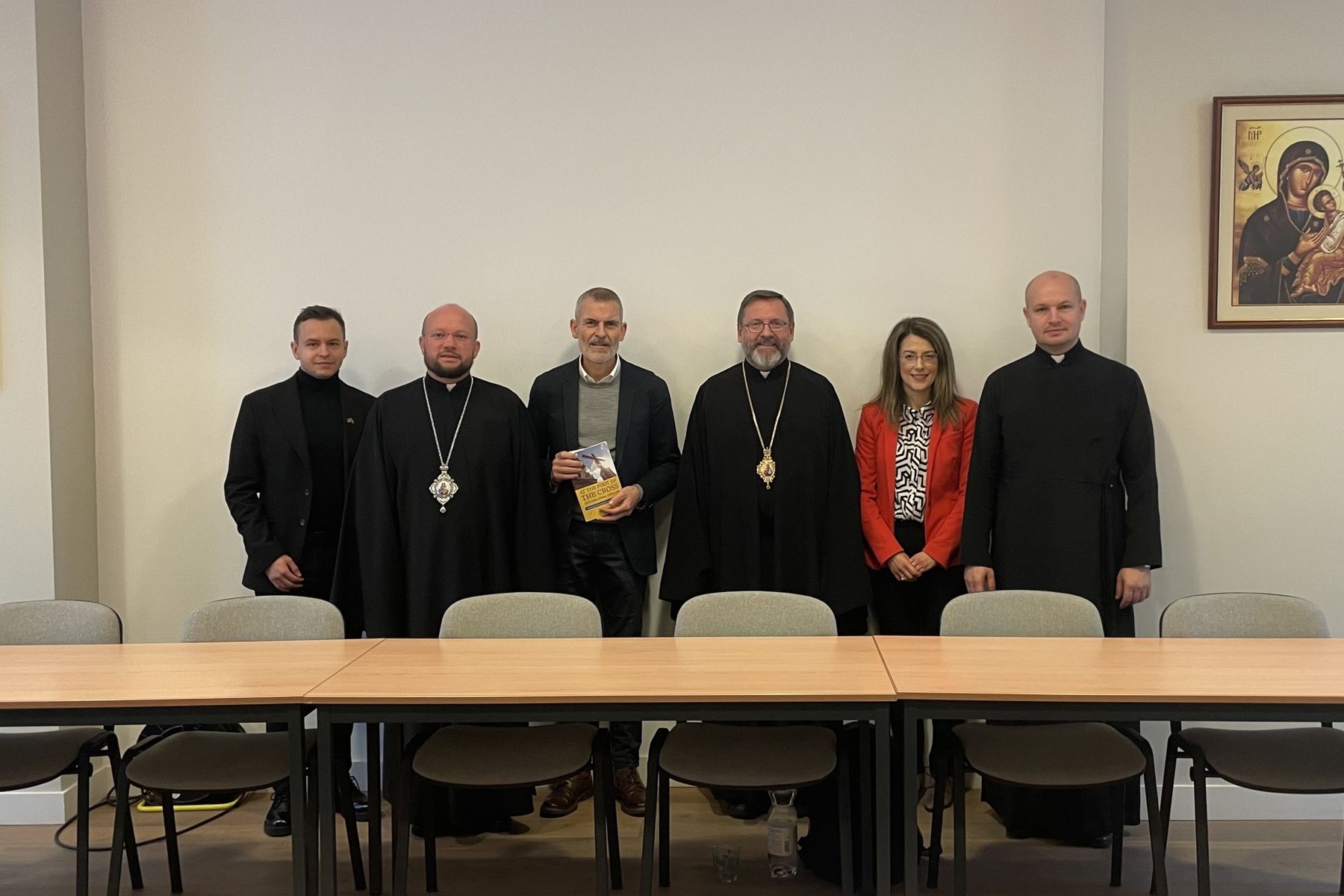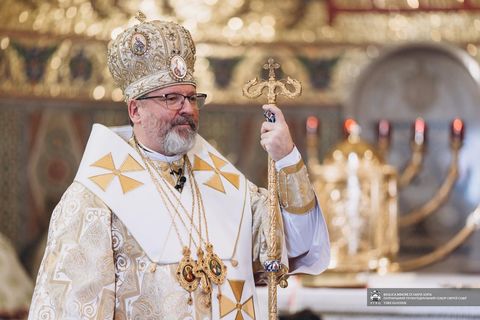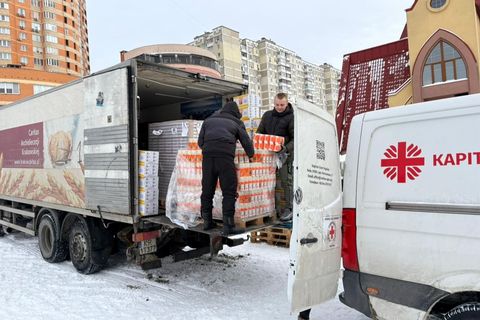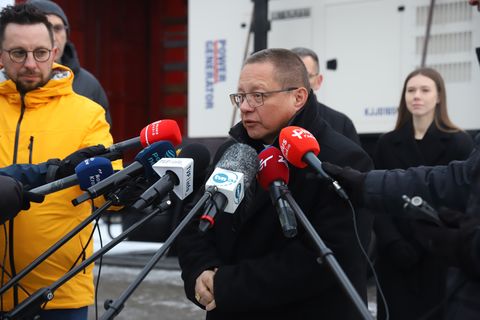The Conference of European Churches (Brussels) discussed the religious situation in Ukraine
On November 8, the Head of the UGCC met in Brussels with Jørgen Skov Sørensen, Secretary General of the Conference of European Churches (CEC). The parties discussed the ecumenical dialogue in Ukraine and the ministry of the churches in times of war.

His Beatitude Sviatoslav outlined the activities of the All-Ukrainian Council of Churches and Religious Organizations and emphasized that since the beginning of Russia’s full-scale invasion of Ukraine, mutual solidarity and dialogue have become a necessary condition for resisting aggression.
The Head of the UGCC called on the SES representatives to begin “a serious process of studying the ideology of the ‘Russkiy mir’, which today has brought death to the Ukrainian land and is a global threat to the entire Christian world.”
“If today Orthodox Christians are killing other Orthodox Christians, if one Church generates a murderous ideology and brings death in the name of protecting Christian values, Christianity in the modern secularized world cannot gain people’s trust,” said His Beatitude Sviatoslav and pointed out the need to resist the “ideology of the Russian world.” The Head of the UGCC added that “Ukrainians can help the global Christian community generate the necessary antibodies to resist the Russian world virus because we have become the first victims of this destructive ideology.”
On behalf of the UGCC, His Beatitude Sviatoslav thanked the EEAS for its prompt and clear response to Russia’s aggression against Ukraine and invited the organization’s leadership to strengthen cooperation with the Ukrainian religious community.
Katerina Pekridou, Head of Programs of the CEC, noted the Ecumenical Concept of the UGCC as “an exemplary document for building ecumenical dialogue.” The parties also discussed cooperation between the ecumenical structures of the UGCC and the CEC.
Bishop Stepan Sus, head of the Pastoral Migration Department of the UGCC, said that “in countries where there are no canonical structures of the UGCC, we often cooperate with representatives of local Protestant and Orthodox churches” and expressed gratitude for “fraternal consideration of our pastoral needs and willingness to provide us with their churches and schools.” According to Bishop Stepan, such gestures of solidarity testify to a common desire to build the unity of all Christians based on shared Christian values.
The Conference of European Churches unites 114 European churches of Catholic, Orthodox, and Protestant traditions to cooperate with the European Union institutions in Brussels and Strasbourg to promote ecumenical dialogue and respect for religious freedom in European countries.
Secretariat of the Head of the UGCC in Rome


